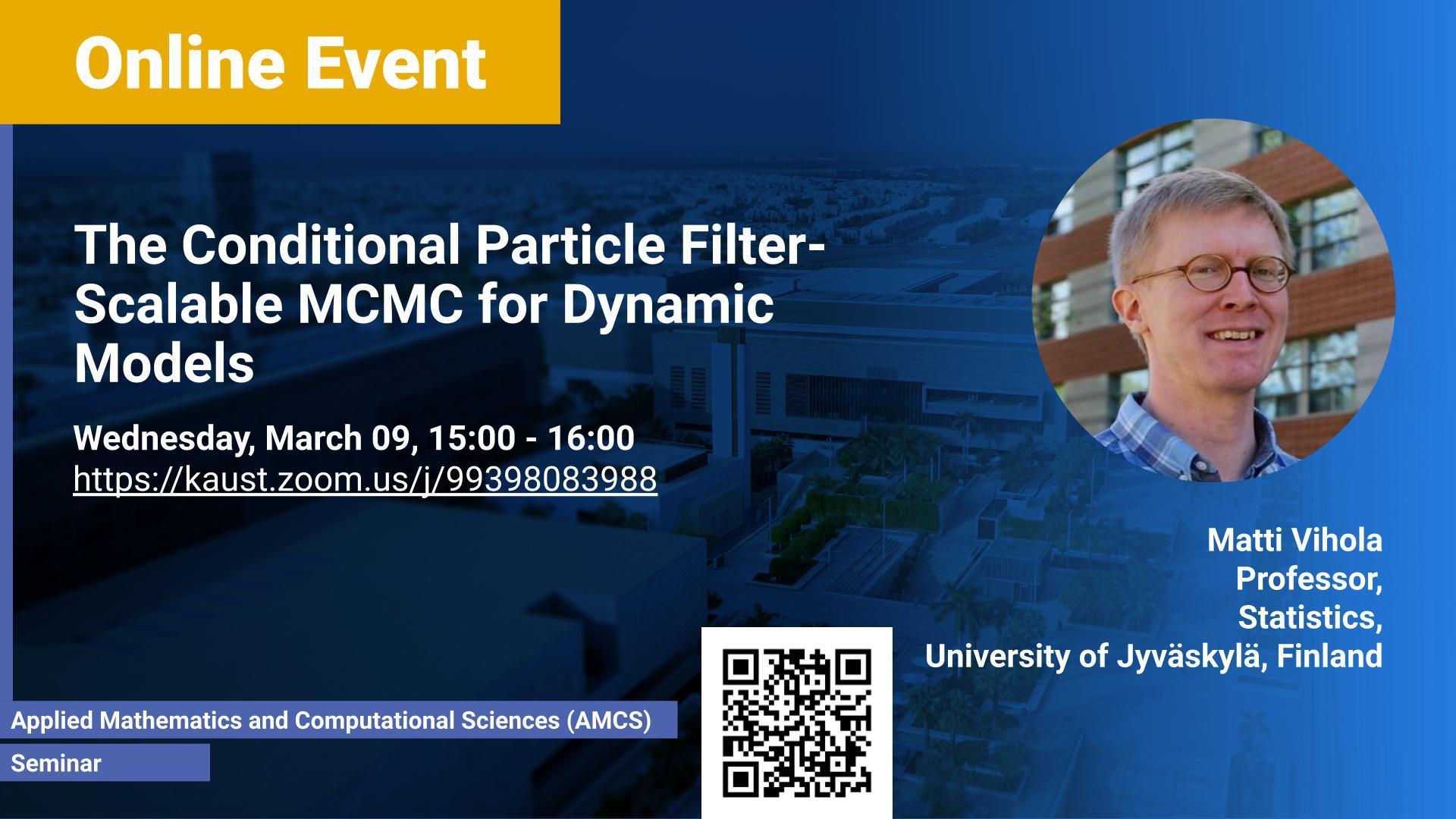Abstract
Particle filters were developed in the 1990s by the engineering community for the so-called 'filtering problem': on-line estimation of time-varying latent state based on a stream of noisy observations. More recently, particle filters have been combined with Markov chain Monte Carlo (MCMC) in order to perform Bayesian estimation of hidden Markov model parameters and 'smoothing', that is, estimation of the latent state progress through time, given a fixed (but potentially long) observation record.
This talk focuses on a 'particle MCMC' method known as the conditional particle filter (CPF), or the particle Gibbs. The CPF is a slight algorithmic variant of the original particle filter, but serves a different purpose: it defines an MCMC transition targeting the HMM smoothing distribution. The empirical evidence suggests that certain variants of the CPF mix well even in high dimensions (with long observation records). We review some theoretical insights that consolidate such empirical findings, and justify why the CPF is often efficient for HMM inference.
Brief Biography
Matti Vihola is a Professor of Statistics at University of Jyväskylä, Finland. He received a PhD in mathematics in 2010 and held a faculty position at Oxford 2014-2015. He has been awarded four Academy of Finland research grants, the latest as a team leader in the Finnish Centre of Excellence in Randomness and Structures (FiRST) (2022-2029). He is an associate editor of Scandinavian Journal of Statistics and Statistics and Computing. His research interests include computational statistics and applied probability, and in particular Monte Carlo methods and Bayesian inference.
